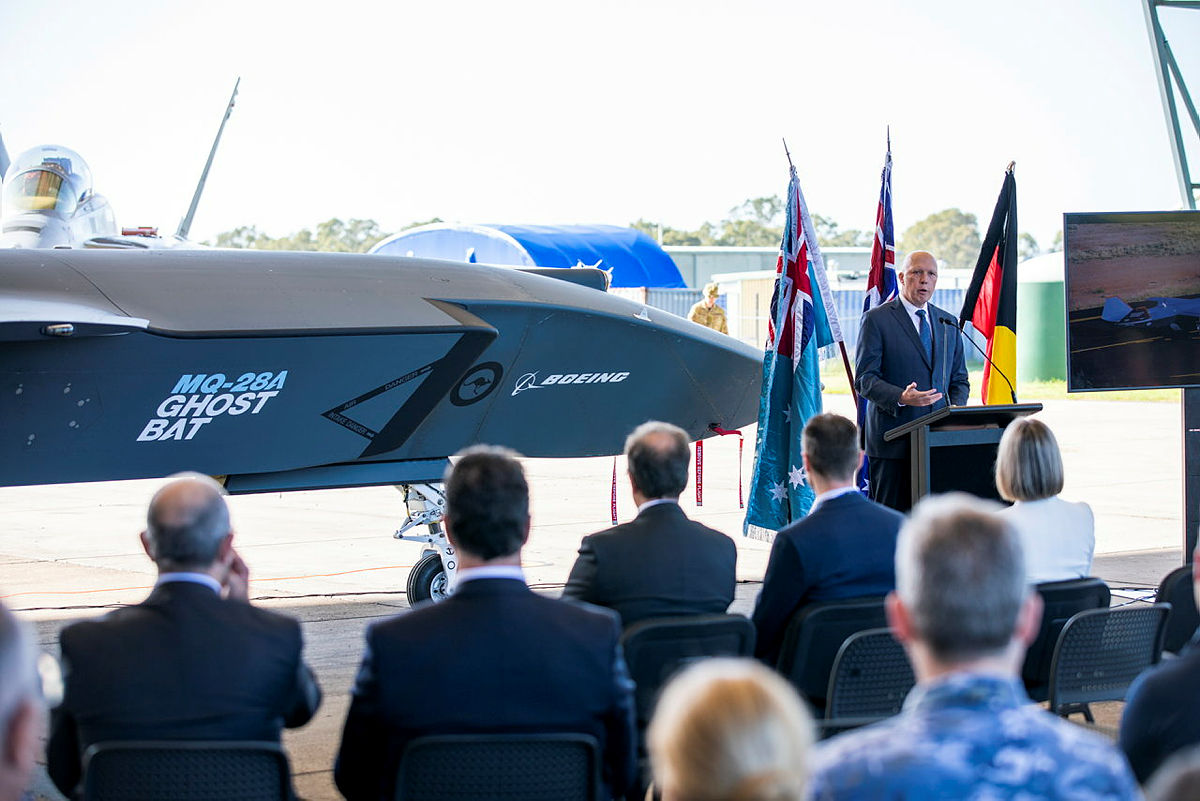The five-domains update

Sea state
As Russia’s costly invasion of Ukraine grinds into its second month, what was framed as an ‘imminent’ plot to launch an amphibious assault on the port city of Odessa seems to have more bark than bite. The Pentagon hypothesised earlier this week that the dozen Russian vessels anchored in the Black Sea, poised to assault Odessa, were a ‘diversionary tactic’ to draw Ukrainian troops away from Mariupol and Kyiv. Ukrainian forces, already outnumbered, are torn between defending Odessa and reinforcing their compatriots inland, potentially giving Russian a significant advantage.
The Chinese aircraft carrier Shandong made an unexpected passage through the Taiwan Strait just hours before a scheduled conversation between the Chinese and US presidents last Friday. The Chinese government labelled the movement of the carrier, shadowed closely by a US destroyer through the strait, a ‘routine training exercise’. Nevertheless, with anxieties already heightened over China’s perceived support of Russian President Vladimir Putin’s Ukraine invasion, the transit will amplify fears over Beijing’s plans to subjugate Taiwan.
Flight path
Boeing’s ‘loyal wingman’ Air Power Teaming System being developed for the Royal Australian Air Force now has an official designation: the MQ-28A Ghost Bat. The name was announced by Defence Minister Peter Dutton at RAAF Base Amberley in Queensland. The uncrewed combat aircraft is named after Australia’s only carnivorous bat. The drone can deliver fighter-like performance with a range of 3,700 kilometres, which will allow it to fly independently or team with other uncrewed or crewed aircraft. The Ghost Bat is the first military aircraft to be produced in Australia in more than half a century and its local development may increase the global export potential for Australia’s defence industry.
Aerorozvidka, a unit of elite Ukrainian drone pilots, has reportedly been destroying priority Russian assets, including tanks and trucks, in night-time raids. It’s been a surprising success that demonstrates the power of drones in modern warfare. The unit’s arsenal ranges from inexpensive commercial drones to custom-modified, heavy octocopters that can drop anti-tank grenades. The unit operates via Starlink, a satellite system supplied to Ukraine by US space entrepreneur Elon Musk shortly after Russia’s invasion began.
Rapid fire
The British supply of next-generation light anti-tank weapons, or NLAWs, to Ukrainian forces has helped them inflict major Russian tank losses. More than 4,200 of the Swedish-developed NLAWs, alongside similar weapons like the American Javelin, have been sent to support Ukrainian efforts to dent major Russian armoured advances. The performance of high-tech anti-tank capabilities like the NLAW has reinforced the importance of international aid to Kyiv, but has also raised serious concerns about the vulnerability of modern armour.
General Stephen Townsend, the head of US Africa Command, has requested American ground troops to return to Somalia in response to a resurgence by al-Qaeda-affiliated terrorist group al-Shabaab. American troops were withdrawn from Somalia by President Donald Trump in December 2021, though some supporting forces were left in neighbouring nations, including Kenya. Any return of US forces to Somalia could help reinforce stability there and ensure the nearby international shipping lanes in the Gulf of Aden remain open.
Final frontier
Defence Minister Peter Dutton launched Australia’s defence space command on Tuesday. It’s tasked with ensuring Australia’s continued access to space and the launch follows the official establishment of the command earlier this year. The new command is a recognition from Defence that space is increasingly congested and competitive and Australia has catching up to do. A growing number of countries are similarly establishing space domain awareness capabilities, with the command’s launch coming on the heels of a similar announcement from the Japan Air Self-Defense Force.
Russia has been excluded from a range of international space partnerships in response to its invasion of Ukraine. The European Space Agency has indefinitely suspended its joint Mars mission with Russian space agency Roscosmos. The UK has banned the sale of space-related technologies to Russia, and the US has terminated bilateral discussion of space norms. These developments are likely to further bolster Russo-Sino space cooperation as the two countries establish an international alternative to the US-led efforts to return astronauts to the moon.
Wired watchtower
Hackers gained access to employees’ computers at 21 major US natural gas companies in the lead-up to the Russian invasion of Ukraine. Through compromising machines or purchasing infected computers, hackers attempted to enter the protected corporate networks. The timing coincided with high energy prices and increases in demand in the build-up to war, with the US becoming Europe’s top supplier. Russia views cyber as a tool to influence foreign decisions, but it’s as yet unclear whether Russia was responsible for this attack.
Japan has launched a cyber defence command by reorganising related units in its self-defence forces. It has been tasked with protecting the Japan Self-Defense Force’s information and communications capabilities. Although it is aimed at countering cyber threats from China, North Korea and Russia, legal restrictions and Japan’s self-defence-only policy are likely to limit its effectiveness.